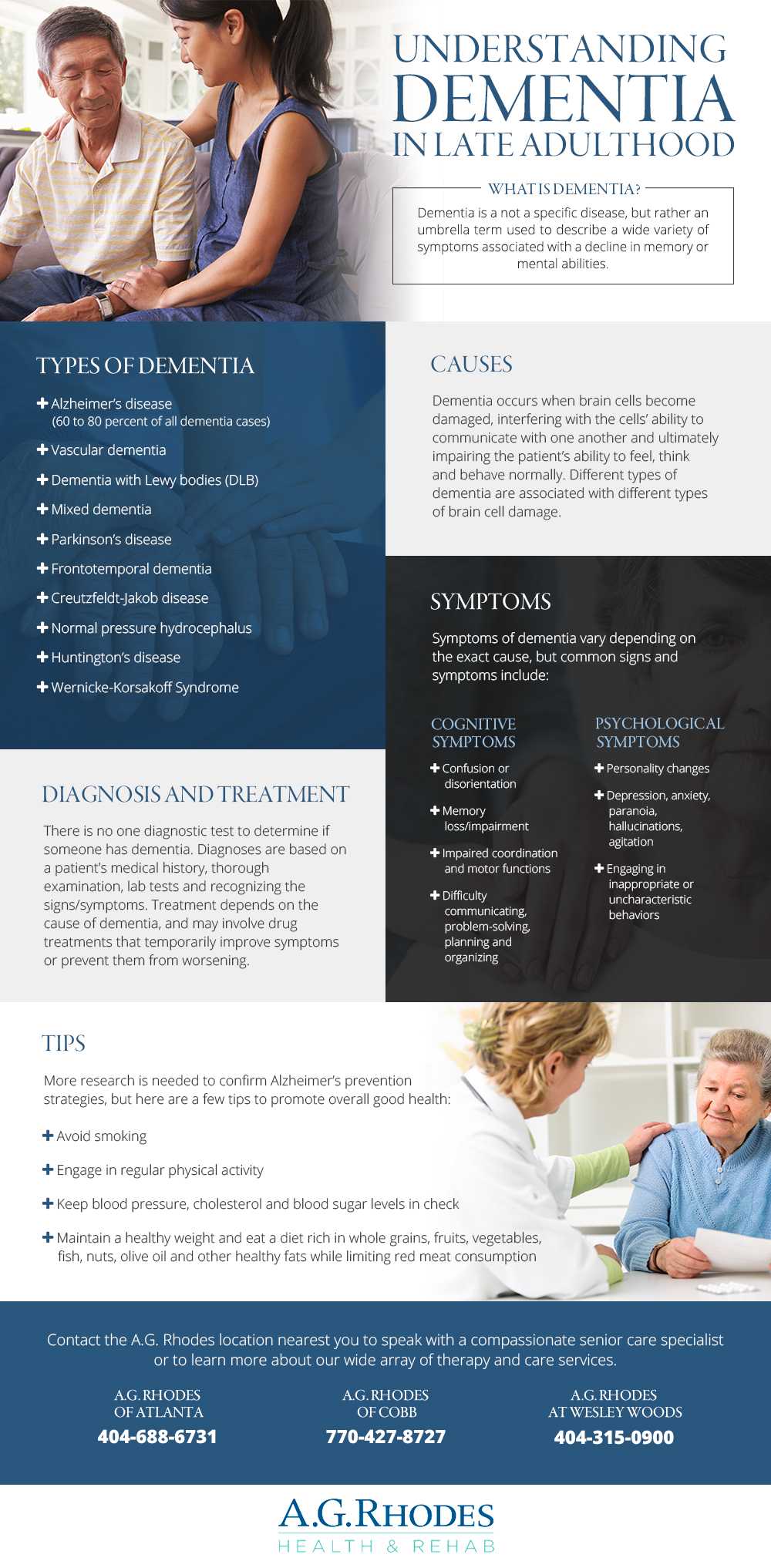What Is Dementia?
Dementia is a not a specific disease, but rather an umbrella term used to describe a wide variety of symptoms associated with a decline in memory or mental abilities.
Types of Dementia
- Alzheimer’s disease (60 to 80 percent of all dementia cases)
- Vascular dementia
- Dementia with Lewy bodies (DLB)
- Mixed dementia
- Parkinson’s disease
- Frontotemporal dementia
- Creutzfeldt-Jakob disease
- Normal pressure hydrocephalus
- Huntington’s disease
- Wernicke-Korsakoff Syndrome
Causes
Dementia occurs when brain cells become damaged, interfering with the cells’ ability to communicate with one another and ultimately impairing the patient’s ability to feel, think and behave normally. Different types of dementia are associated with different types of brain cell damage.
Symptoms
Symptoms of dementia vary depending on the exact cause, but common signs and symptoms include:
Cognitive Symptoms
- Confusion or disorientation
- Memory loss/impairment
- Impaired coordination and motor functions
- Difficulty communicating, problem-solving, planning and organizing
Psychological Symptoms
- Personality changes
- Depression, anxiety, paranoia, hallucinations, agitation
- Engaging in inappropriate or uncharacteristic behaviors
Diagnosis and Treatment
There is no one diagnostic test to determine if someone has dementia. Diagnoses are based on a patient’s medical history, thorough examination, lab tests and recognizing the signs/symptoms. Treatment depends on the cause of dementia, and may involve drug treatments that temporarily improve symptoms or prevent them from worsening.
Tips
More research is needed to confirm Alzheimer’s prevention strategies, but here are a few tips to promote overall good health:
- Avoid smoking
- Engage in regular physical activity
- Keep blood pressure, cholesterol and blood sugar levels in check
- Maintain a healthy weight and eat a diet rich in whole grains, fruits, vegetables, fish, nuts, olive oil and other healthy fats while limiting red meat consumption
Contact the A.G. Rhodes location nearest you to speak with a compassionate senior care specialist or to learn more about our wide array of therapy and care services.


